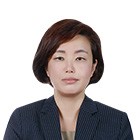Video
Events
Recent Events
Korea-Middle East Cooperation in an Era of Cheap Oil and High Risk
- Expert
- Jang Ji-Hyang
- Hit
- 763
- Date
- 15-02-26 16:47


















Korea-Middle East Cooperation in an Era of Cheap Oil and High Risk: Is Middle Power Diplomacy the Solution?
Date / Time: Wednesday, February 25, 2015 / 10:30am–1:00pm
Venue: Conference Room (2F), The Asan Institute for Policy Studies
The Middle East has been a major issue for Korea in 2015 in light of the dramatic fall in global prices and the ongoing threat posed by terrorism and conflict in Iraq and Syria. On Wednesday, February 25, 2015, the Middle East and North Africa Program at the Asan Institute for Policy Studies and the Jeju Peace Institute co-organized a workshop to examine Korea's Middle East policy on the eve of President Park Geun-hye's upcoming visit to the Gulf.
While cheap oil has been a welcome source of relief for Korean consumers, it has also cut into Korea's all-important export-driven economy. Reduced spending on infrastructure projects in the Gulf has adversely affected Korea's construction firms operating at the helm of the "Second Middle East Boom." The strategic importance of the oil-rich Gulf monarchies is also increasingly being called into question amidst the North American "shale revolution" and energy diversification.
Meanwhile, for the first time ever, a Korean teenager has traveled to fight with the so-called "Islamic State," proving that Korea is no longer immune to the long-running conflict. Given the Korean government's participation in the United States-led anti-ISIS coalition, Korean foreign policy faces serious choices in the fight against ISIS. As the Japanese hostage crisis and Jordanian pilot's execution graphically illustrated, military assistance, humanitarian aid, or even diplomatic support all carry risks.
What is Korea's Middle East policy? Is it equipped to protect and promote the national interest at a time of multiplying challenges in the region? What should be on President Park's agenda when she travels to the Gulf this March 1? How should concepts such as "good international citizenship" and "middle power diplomacy" be applied in the context of Korea-Middle East relations? Bringing together key figures from the diplomatic, academic, and business community, this workshop sought to examine these questions and many more.
* The attached pdf attachment contains the workshop program as well as speaker presentations.
(This workshop was conducted in Korean).
Speakers:
Dr. Jang Ji-Hyang, Director, Middle East and North Africa Program, The Asan Institute for Policy Studies
Dr. Lee Kwon-Hyung, Research Fellow, Middle East Team, Korea Institute for International Economic Policy
Prof. Kang Seongjou, Associate Professor, Department of Trade and Economic Studies, Institute of Foreign Affairs and National Security
Dr. Han Intaek, Director of Research, Jeju Peace Institute

Jang Ji-Hyang
Principal Fellow, Director
Dr. JANG Ji-Hyang is a Principal Fellow and director of the Center for Regional Studies at the Asan Institute for Policy Studies. Dr. Jang served as a policy advisor on Middle East issues to South Korea’s Ministry of Foreign Affairs (2012-2018) and currently serves to Ministries of Industry, Justice, and Defense. Her research interests include political economy of the Middle East and North Africa, political Islam, comparative democratization, terrorism, and state-building. Dr. Jang is the author of numerous books and articles, including The Essential Guide to the Middle East (Sigongsa 2023 in Korean), The Arab Spring: Will It Lead to Democratic Transitions?(with Clement M. Henry (eds.), Palgrave Macmillan 2013), “Disaggregated ISIS and the New Normal of Terrorism” (Asan Issue Brief 2016), “Islamic Fundamentalism” (International Encyclopedia of the Social Sciences 2008) and a Korean translation of Fawaz Gerges’ Journey of the Jihadist: Inside Muslim Militancy (Asan Institute 2011). Dr. Jang received a B.A. in Turkish studies and M.A. in political science from the Hankuk University of Foreign Studies and her Ph.D. in political science from the University of Texas at Austin.
view more


